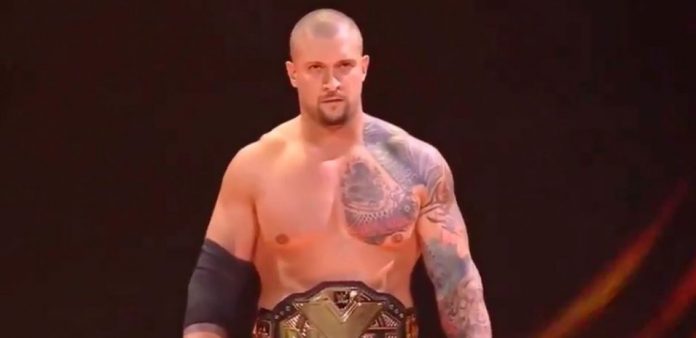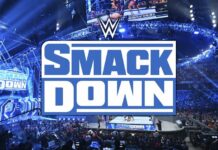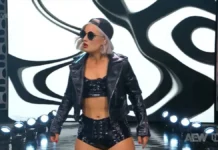
When Karrion Kross debuted on Raw last week, his appearance made headlines for all the wrong reasons, as he was defeated by Jeff Hardy is less than two minutes, drawing the ire of many fans because the current NXT champion was given a Brooklyn Brawler debut on the main roster. Depending on how much stock you want to put into the Kross push, that reaction might be justified, but it speaks to a much bigger problem within the WWE structure, the total and complete disconnect between NXT and the rest of the company.
When NXT was launched as a WWE Network exclusive brand, it gave the show the flexibility to be something different under the WWE banner. The weekly broadcast didn’t have the strict format of a specific amount of commercials or specific segments each week that goes along with traditional television. Granted, the ad revenue and sponsorships are some of the reasons the Raw and Smackdown brands have as much value as they have for the current TV deals, but the point is, at least initially, NXT was more of a selling point for Network subscriptions since it was the exclusive platform. Furthermore, it was much more of an actual developmental brand because if a prospective didn’t make it to the main roster, it was less of an investment based on the niche audience. Basically, NXT shows were literally less valuable because main roster television exposure is where the major portion of WWE business is done. Don’t get me wrong, that’s not meant as a criticism of the original NXT, but rather to explain how the brand was meant as a developmental project.
In many respects, NXT was the “indy” version of a WWE brand, specifically because that style became a profitable part of the industry. Keep in mind, before the formation of All Elite Wrestling, Ring Of Honor was drawing sell out crowds in smaller venues with The Elite as featured performers. A brand tailored to that style not only allowed WWE to get a piece of the pie, but also sign athletes that made their name with that style. It boosted the amount of talent under contract and prehaps more importantly, it prevented them from signing elsewhere. For example, it’s a safe bet that Adam Cole, who has all the talent to be a main event star, would be in a more prominent spot in AEW than he has on a third-tier brand in WWE.
Speaking of All Elite, it’s ironic that one of the ways that its launch had an impact on the industry was that NXT was moved to Wednesdays, specifically to compete with Dynamite. Despite what Triple H said in recent media calls, the move was absolutely made to try to snuff out any momentum the upstart group would garner as a true alternative in the business. Thankfully, and even Triple H knows this, AEW won the Wednesday night “wars,” in terms of its ability to maintain a core audience. While NXT’s move to Tuesday was based on USA’s acquisition of the rights for NHL games, the fact remains that the WWE brand rarely defeated the Khan project in the ratings and didn’t hinder its ability to get off the ground. For the first time since the closure of WCW in 2001, a promotion outside of the McMahon empire is profitable on a national level in the United States.
Along with that, the “war” with AEW fundamentally changed the NXT brand and with its mission to derail All Elie as a flop, the brand itself seems to lack direction. Instead of being tailored to a niche demographic and programming that made it standout under the WWE umbrella, NXT became just another WWE television show and more often than not, it’s presented as irreverent in the grand scheme of things. Adam Cole is spending the prime years of his career on the least watched show on the WWE schedule when he could be much more valuable as a major star on Raw. Does anything that happens on NXT really have an impact on WWE as a whole?
The answer to that is usually no and proof of it is how the previously mentioned Karrion Kross is used for Raw. The former AAA and Impact star made his way to NXT with a decent amount of buzz, and even after an injury put him on the shelf, he returned to regain the momentum as NXT champion. Kross was presented as a dominate and dangerous athlete, steamrolling most opponents with decisive victories.
It was puzzling that he made his Raw debut as NXT champion because a competitor usually drops the title before they go to the main roster, especially since it’s theoretically easier to book someone new on a show if they aren’t going to be involved in other angles on a different show. As we saw, Jeff Hardy beat him in less than two minutes, and regardless of the fluke nature of the win, it still made not only Kross look weak, but emphasized how irrelevant NXT is in the big picture of WWE. Sure, a fluke win gives a cover, but not for the fashion that Kross was pushed prior to that. Is Hardy that much above everyone on the NXT roster that none of them could’ve landed the same fluke win against Kross before this? More importantly, with the way that Kross was presented as champion, it’s illogical that he wouldn’t dominate Hardy the same way he had most of the NXT roster. Granted, Jeff Hardy will be considered a legend when he retires, but it’s not as though he’s one of the main competitors used on Raw.
In my opinion, the only thing the NXT champion jobbing in less than two minutes accomplished was to tell the audience that the brand itself doesn’t actually matter. It’s almost silly to have to say this, but one of the most important rules in the history of the industry was to protect the champions and the prestige of the titles because if the championships aren’t considered important, why should the fans want to pay to watch title matches at the major events? Sure, they put Kross over Keith Lee in a match this past week, but what did that accomplish? Lee hasn’t been on television in six months and lost to Bobby Lashley last week and was defeated again this week. How does that tell the audience that Keith Lee is a star? An easy way to avoid both of those scenarios is book Lashley and Kross against anyone that chases around the 24/7 title on a weekly basis. As I wrote in an article last week, the WWE simply doesn’t get Keith Lee and if he’s going to make progress in his career then he will have to compete outside of WWE.
As far as Kross goes, I’m not sure of the purpose of him book on both Raw and NXT at the same time. Clearly, this isn’t an attempt to elevate the NXT title or increase exposure to the brand or he wouldn’t have jobbed to Hardy in two minutes. The first impression that main WWE audience had to Kross was a glorified enhancement match so it’s going to be difficult to present him as a dominate champion in the next for months.
What do you think? Comment below with your thoughts, opinions, feedback and anything else that was raised.
Until next week
-Jim LaMotta
E mail [email protected] | You can follow me on Twitter @jimlamotta







